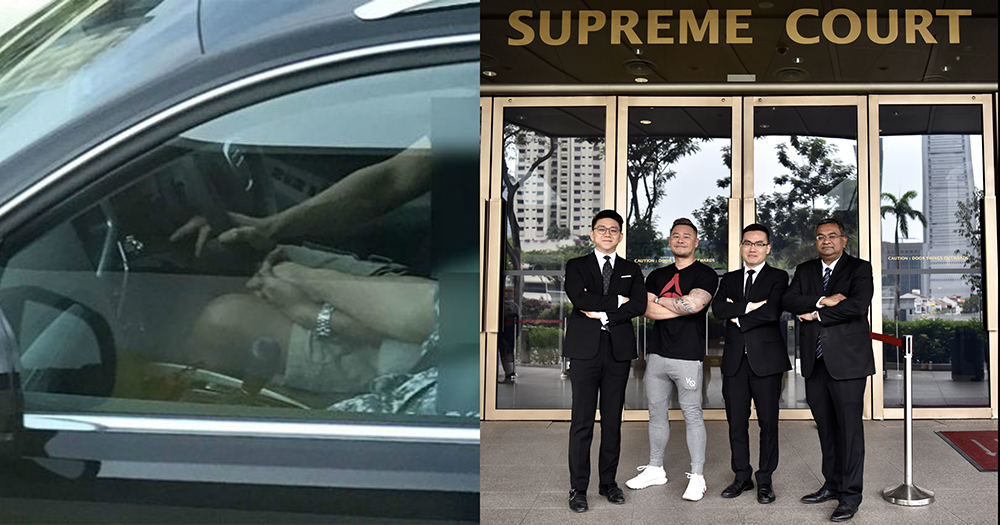The second of three court challenges against Section 377A took place on Nov. 18.
The legal team for Johnson Ong Ming, also known as DJ Big Kid, comprises Eugene Thuraisingam, Suang Wijaya and Johannes Hadi of Eugene Thuraisingam LLP.
The legal team argued in written submissions shared with Mothership that homosexuality is neither a social choice, nor a result of social factors.According to the team, it is a result of biological factors.
Six medical professionals say homosexuality cannot be wilfully changed
Ong's team presented expert evidence from six medical professionals to support their arguments.
They noted that their case differed from an earlier challenge by Tan Eng Hong in 2010, in which statements by medical and scientific bodies were provided to the court for judicial notice, but not formally as evidence.
Three of these experts were called by Ong's team, while the other three were called by the Attorney-General's Chambers (AGC).
According to Ong's team, all six experts agreed that sexual orientation and attraction can be caused by biological and non-social environmental factors.
Biological factors can refer to epigenetics and fraternal birth order effect while non-social environmental factors include hormonal levels in the womb and sex-specific proteins.
All six also agreed that there is no credible scientific evidence to support the idea that homosexuality can be wilfully changed.
This means that attempting to change sexual orientation through conversion or therapy, or other forms of intervention, is neither safe nor effective, according to the legal team's written submission.
Ong's lawyers added that there was also little scientific evidence to show that social-environmental factors, such as culture and parenting, cause homosexuality.
Legal team challenged conclusions from medical professionals called by AGC
However, Ong's team also challenged the conclusions drawn by two of the medical professionals called by AGC.
These two are:
- Dr. Cai Yiming, an Emeritus Consultant in the Department of Developmental Psychiatry at the Institute of Mental Health (IMH).
- Dr. Tay Sin Hock John , a retired geneticist and practising doctor.
Cai opined that there is "little we can conclude" about choosing one's sexual orientation while Tay said that culture and environmental factors play a role in determining sexual orientation.
The team pointed out that Cai's remarks directly contradicts the scientific literature Cai himself cited. The study itself notes that while one can choose their sexual partners, they have no choice in their orientation.
The team also challenged Tay's conclusion as he had cited no scientific literature to support this position.
Consensual gay sex does not harm the rights of others
Medical evidence aside, the team also pointed out that acts of private, consensual and intimate sex between two adult males do not violate any legally protected right or interest.
The team cited the government's position that it will not proactively enforce Section 377A.
"The Government, by stating that it would not proactively enforce Section 377A, concedes that the offences covered by Section 377A does not harm any legally protected right or interest."
The lawyers further cited a statement by Attorney-General Lucien Wong in 2018, on how it will “not be in the public interest” to prosecute consensual gay sex between two adults.
Legal team: Section 377A is unconstitutional
Therefore, the team argued, Section 377A violates:
- Article 9 of Singapore's Constitution, which guarantees a person of his life or personal liberty in accordance with the law.
- Article 12, which guarantees equality before the law and the equal protection of the law.
This is because Section 377A essentially criminalises Ong for his identity, with the manifest purpose to discriminate.
Considering the evidence presented, the team argued that Section 377A is therefore "absurd".
Related stories:
Left photo via, right photo by Ching S. Sia
If you like what you read, follow us on Facebook, Instagram, Twitter and Telegram to get the latest updates.
